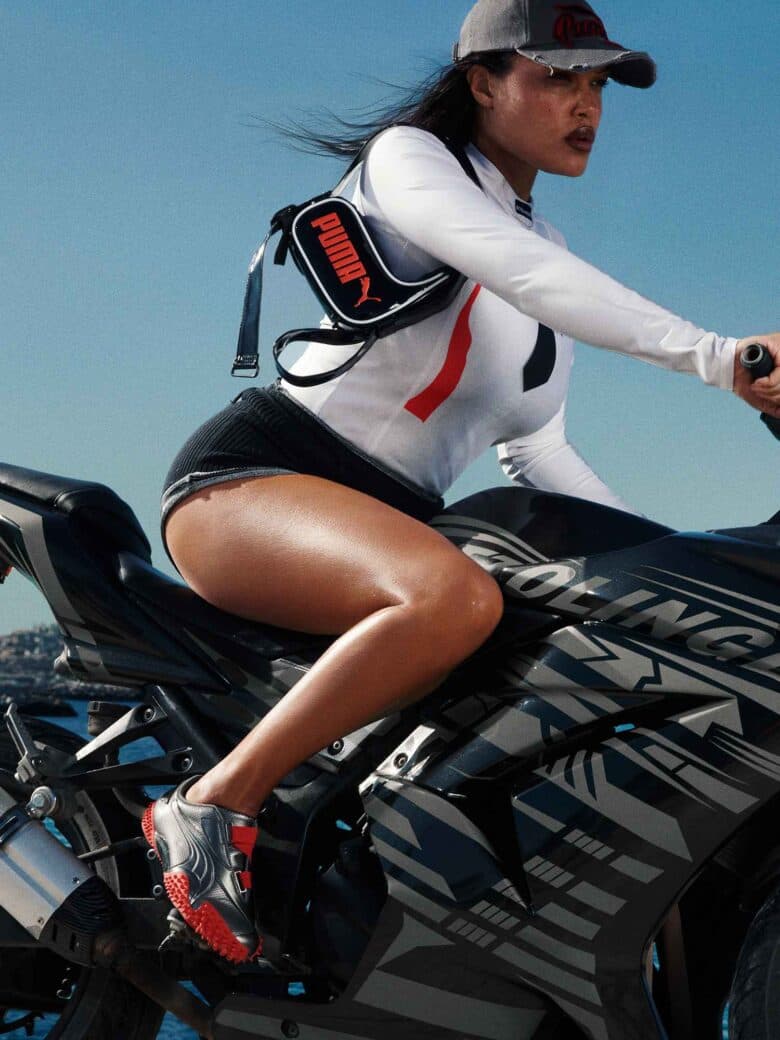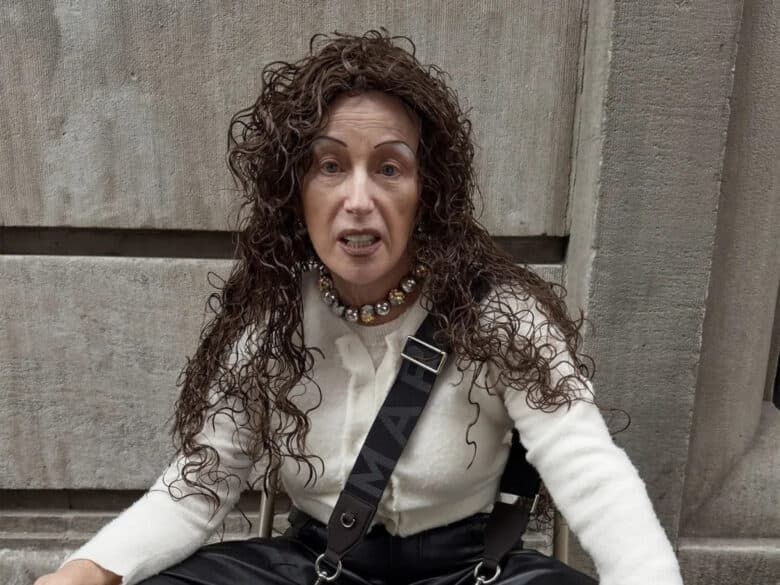Flo Milli on carving out a new path in rap and coping with a “very traumatic” transition to fame
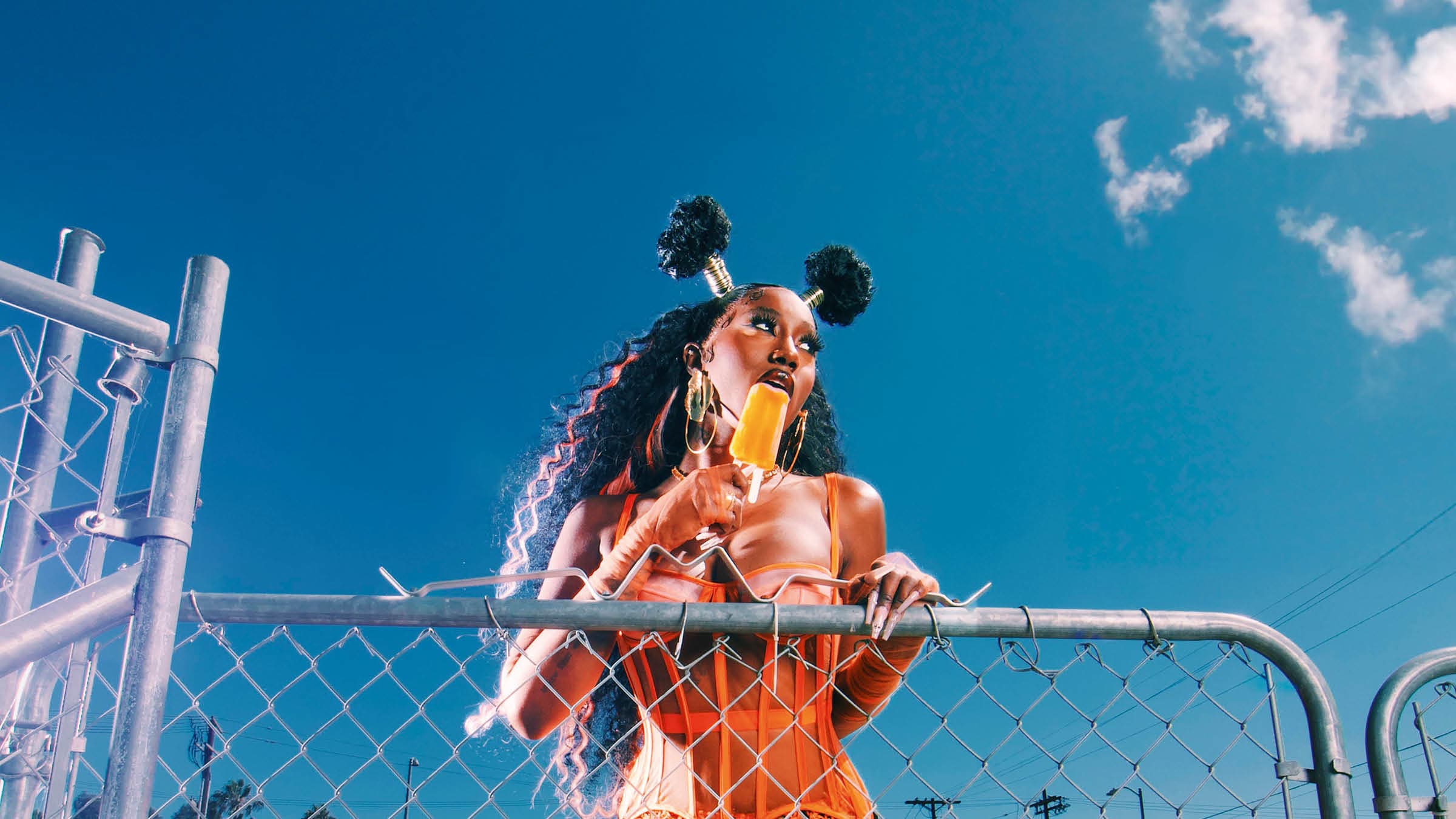
Flo Milli isn’t exactly what I had expected. The rapper, who was born Tamia Monique Carter, is known for being bad – not, like, bad bad, but she’s become synonymous with phrases like “bad bitch” and the “baddest in the game”. Her lyrics are confident to the point of being braggadocious: in her latest earworm single, “Fruit Loop”, she raps “I’m the shit” 56 times, without a hint of sarcasm. But the woman I meet over Zoom is disarmingly sweet; she’s giggly, speaks softly, often in aphorisms, and hasn’t lost any of her Alabamian twang. She’s younger than I anticipated, I guess, but her talent and success belie her age. At 23, Milli is part of Generation Z, and as such is representative of a new cohort of rappers who are committed to doing things differently.
Milli burst onto the scene in 2019, with “Beef FloMix”, which thanks to its zingy one-liners (“I do what I please and you do what I ask”) went viral. She was soon signed by RCA and dropped her debut mixtape, Ho, Why Is You Here?, in 2020. Two years later, she followed up with the more intentional You Still Here, Ho?, and is now gearing up to finish the trilogy with Fine Ho, Stay. “I would say that the new era is just a more grown and improved Flo that has mastered her craft even more than before,” Milli muses, when I ask her about what differentiates this album from her previous efforts. “The difference would just be more flavour. I don’t think it’s much different from what I’ve already been giving you guys. It’s just a new and improved version of that. You’re also going to see different sides of me that you haven’t seen before. I’m excited to show that.”
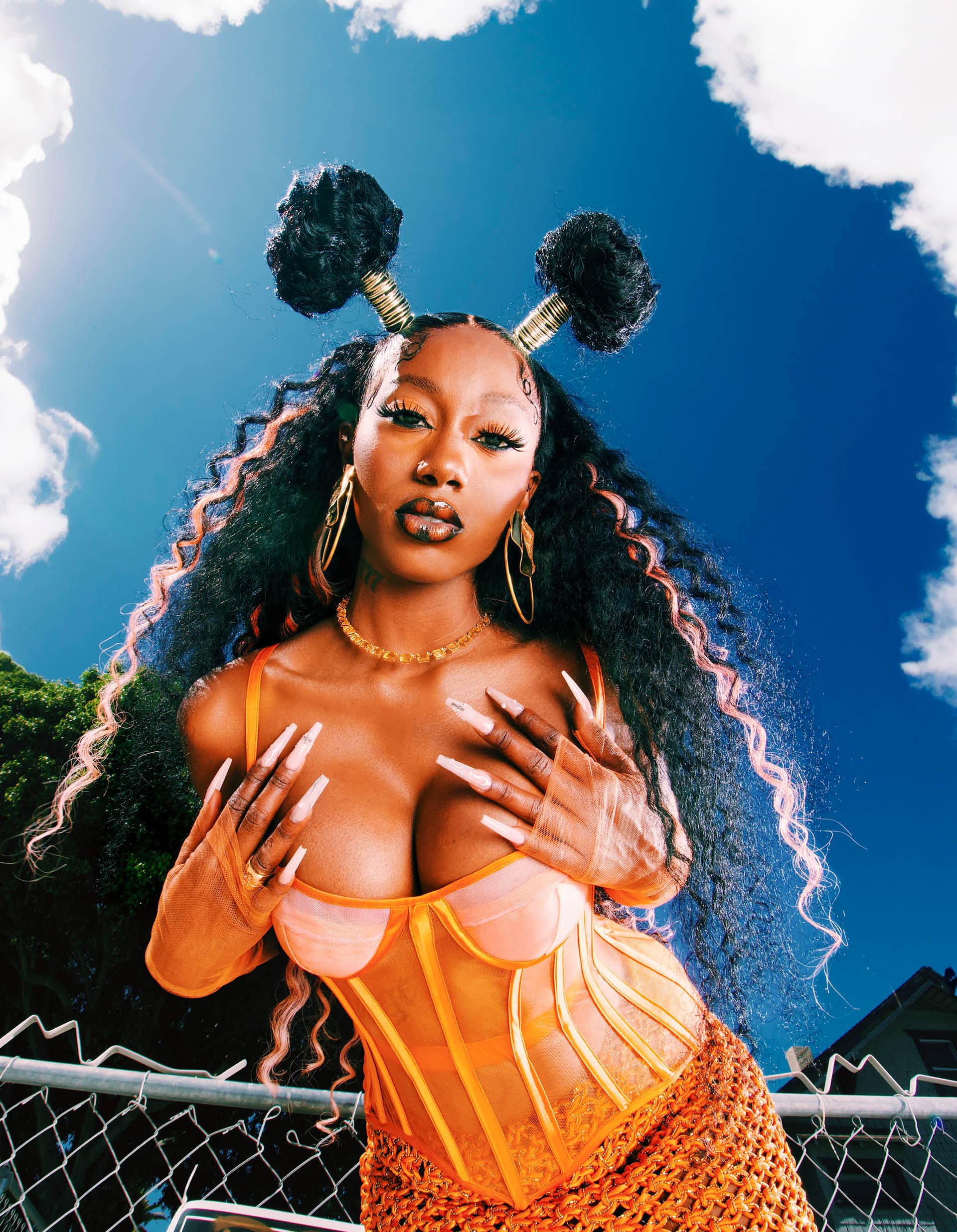
But how much of our artists, especially the younger gen, are we really allowed to see? Over the course of our call, it becomes apparent that Milli is with her publicist or manager (who interrupts once to veto a question), and as a result we’re not able to develop a rapport that allows us to speak candidly. The journalist Shaad D’Souza had a similar experience when interviewing Ice Spice, also 23, for The Guardian. He wrote that the rapper came across as “extremely conscious of what she is saying”, and that her representatives and publicists “swoop when a topic is broached that they consider off limits”. While this level of protection stifles interviews, it is somewhat understandable given the era of social media we’re living in, where the threat of cancellation looms large over anyone with a semblance of a following.
Certainly, while it may seem like she has adjusted well to fame, Milli laughs when I make this observation. “It was not always like this, let me say that,” she says, putting the emphasis on “not”. “Coming into fame is very traumatic. I don’t know if people speak to that, but I would say it is because everything changes at a rapid pace, it’s almost overnight, even if you’ve been working your whole life for it. Once it happens, everything comes at you fast, people change around you and you’re essentially changing, so it’s not a smooth transition. I’m not gonna lie, I’ve changed into a whole different person since everything happened to me.”
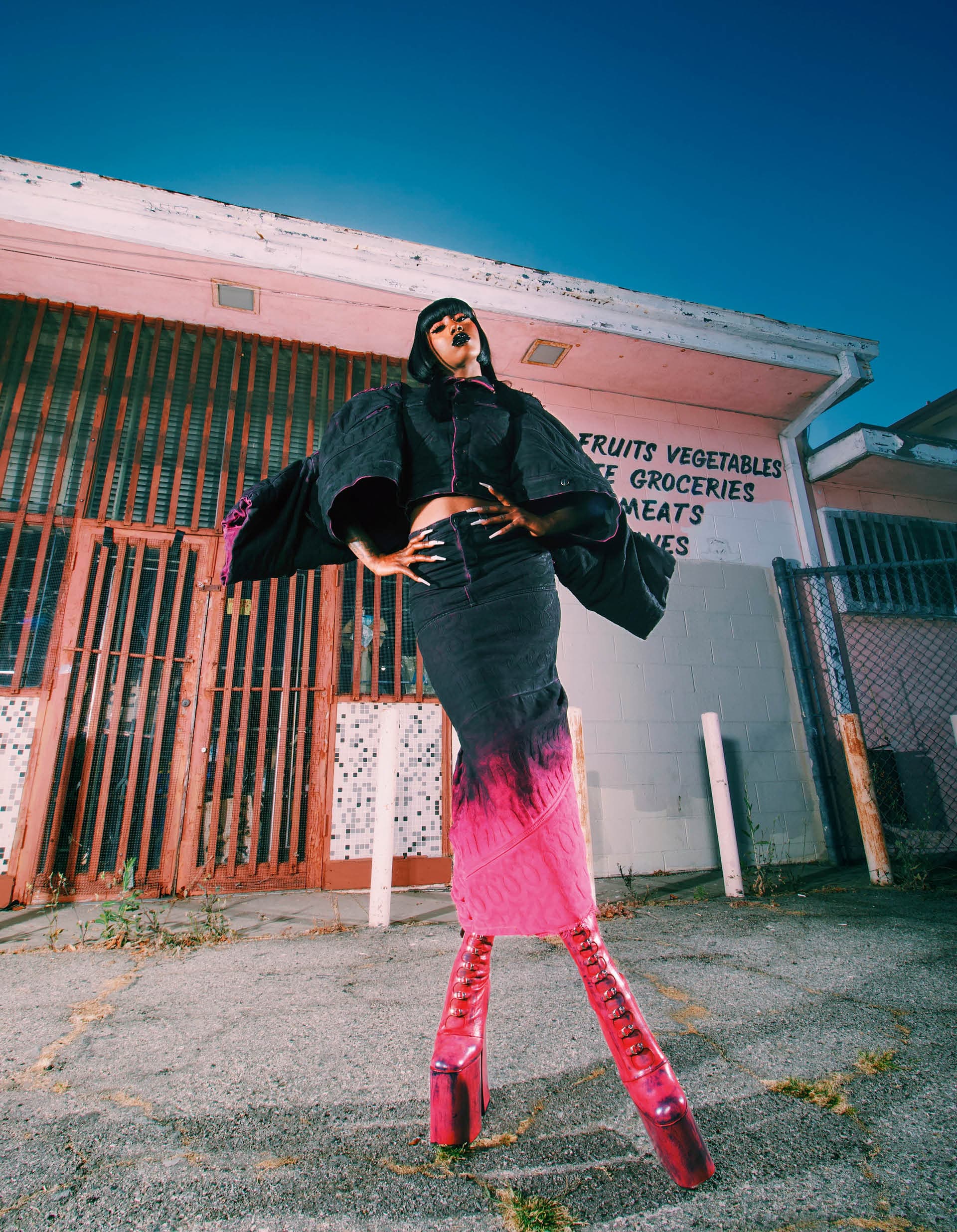
Milli doesn’t detail any particular highs or lows, but it’s evident that she’s developed her own tool kit to survive it, and it’s far more nourishing than what many of her millennial forebears turned to: she openly discusses mental health, spiritualism and the Church. “I think the number one thing is to create an environment for yourself that’s positive. I’ve put myself in a place where I can feel peaceful. I have my downtime and I know how to have boundaries, because people have a lot of access to you as a celebrity. If you put yourself first, it won’t be as draining,” she says. “Getting up and going straight on your phone is incredibly toxic. It’s not like back in the day when you were lucky if you saw Beyoncé at a show. Now people feel like they can wake up, tweet you and say some negative shit. My goal in the morning is making sure that I pour into myself. I tell myself I’m beautiful and go out for a walk, I only get on my phone when I’m ready to work.” It’s a lifestyle that is so different to that of the pop stars of previous generations, I comment, but Milli corrects me: “I feel like that rock-star shit is still going on sadly. There’s artists that do drugs and then there’s those that take care of their mental health. You see it in people’s art and the way they handle their careers.”
It’s surprising that Milli set her sights on rap aged just nine, having grown up in Mobile, Alabama, a city that isn’t particularly known for its music scene. She was an overachiever who was active in her church and ended up graduating with honours and advanced diplomas, but she never forgot her end goal. By 11 she had formed the rap group Real & Beautiful, which she broke up three years later; by that point, she had learned to harness social media – in fact, some of her tactics were pretty ingenious. She would record a song, make a 30-second Instagram video, pay Instagram influencers $50 to re-post it, before putting the song out officially once it had got exposure. She laughs when I recount this: “I was just planting myself in front of millions of people, and when you’re consistent with it, you build an algorithm of people who are familiar with you. Even to this day I see people who use my little Instagram name [Clap for Mia] before I renamed myself.”
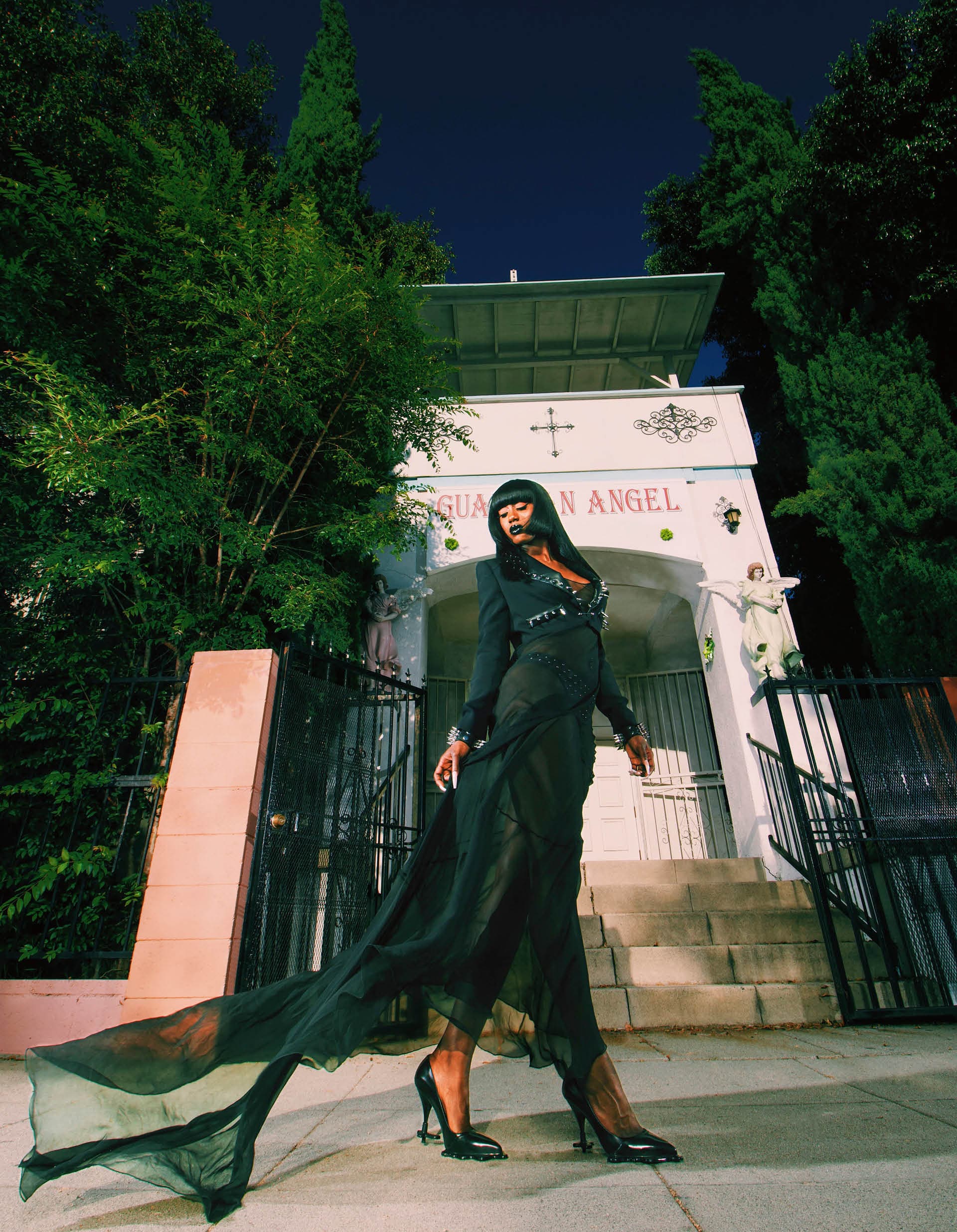
But fame comes with a cost, it seems. “Absolutely not,” the rapper says when I ask if she can still have fun with social media. “I used to have so many funny videos. I really thought I was going to be a comedian at first because I used to steal my grandma’s wigs and pretend to be my mama when I had the house to myself. I built this platform because I would just do all types of shit, I really didn’t care. I can’t be freely open now that I have so many eyes on me – I’d be scared that somebody’s going to say, ‘Flo Milli, she’s fucking cancelled.’ I would just rather not. I show it sometimes, but it’s not fun because you have to be more careful about what you do and say.” I ask the rapper to expand on this fear, offhandedly citing the examples of Matty Healy’s comments about Ice Spice and the allegations against Lizzo (who has been accused of sexual harassment by her tour dancers) – but the latter reference seems to touch a nerve, and her publicist (or representative) interjects: “No, we’re going to pass on that question.”
We return to the topic of Milli’s place in the industry. Much of her success is founded on a fervent self-belief that she developed as a child. This only grew when, as a teenager, she was teased for the way she carried herself by a group of girls. “I used to deal with people telling me that I was conceited,” she says, detailing that she would be mocked for dressing nicely, and even for the fact that her godfather bought her expensive weave. “They felt like I thought too highly of myself, but I was just being me. I thought very great things about myself, and when I was younger that would bother people a lot. Not everyone is built with that confidence.”
Milli is remarkably self-aware: she has been peppering her bedroom walls with postcards of affirmations since she was a young girl. The bravado she exudes in her music and public persona, then, isn’t ego, rather it’s a long-held practice of speaking her dreams into reality, or as some would call it, manifestation. “Look, why would I tone me down?” she asks, doubling down. “I always said I’d rather be too much than not enough. Sometimes you have to realise that people are projecting and you can just be a mirror. That’s why I look at hate differently, I see it as some of them wanting to do the same thing as me, but because I’m actively doing it, it’s triggering for them. You can’t carry people’s stuff.”
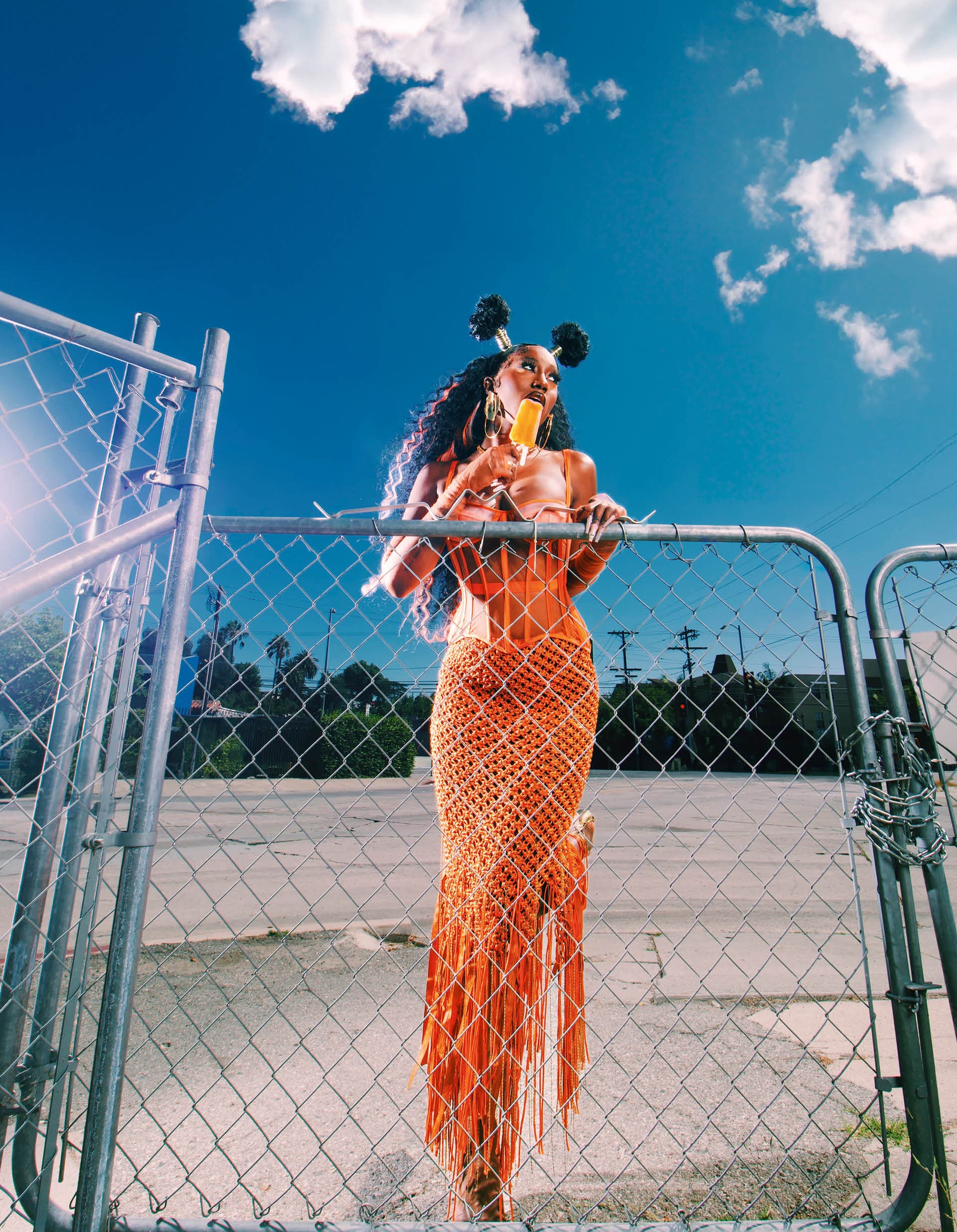
As a result, her attitude towards her place in the industry is remarkably unbothered. While there was once only room for one or two female rappers at the top, there’s been a boom of late, with the likes of Cardi B, Doja Cat, Megan Thee Stallion, Ice Spice, Latto and Milli coming up consecutively. For her part, Milli is very much a girl’s girl – she often works with largely female teams and strives to push up her peers. “It failed miserably [when they tried to get us to compete] because all that happened was more women just started winning, winning, winning,” she comments. “When it comes to talent or creativity, I don’t look at anybody to try to see what they are doing. I will just be in my own lane, for real. Nothing makes me think I need to step my game up like myself, Tamia Carter. Every day I’m in the mirror saying I got to be better than yesterday. I’m always thinking in that sense so I could never look at other women as competition. I don’t feel like I could beat them and I don’t feel like they could beat me.”
But when it comes to male rappers who put down female rappers, it’s another story. “All that is is insecurity, girl,” she shrugs. “They’re just mad because we can say what they’ve been saying for years and we’re flipping it on them. Think about it like this – guys always looked up to these other guy rappers, but now their girlfriends and ex-girlfriends are looking up to women. It’s really a little war going on right now, but the girls are winning. I be feeling like they are a little jealous of us, but you know, that’s another conversation.”
This refreshing confidence has got Milli far, and she’s determined to make it all the way. She tells me that she wants Fine Ho, Stay to be “the biggest thing in the world”, but she’s also planning to return to modelling, as well as try her hand at acting. “My goal is just to grow and master my craft even more. I’m looking positively at it all,” she concludes. And of course she is, the world is Flo Milli’s oyster… as she’s known all along.
